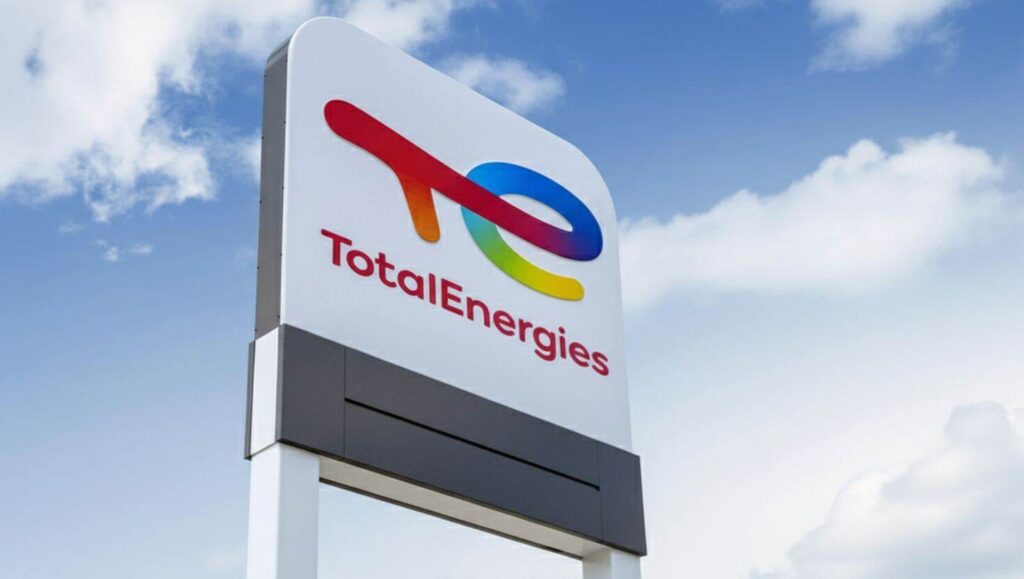The $4.5 Billion Question: Impact of Mozambique LNG Cost Overrun on TotalEnergies Stock (TTE)
The $4.5 Billion Question: Impact of Mozambique LNG Cost Overrun on TotalEnergies Stock (TTE) : :For U.S. investors holding TotalEnergies (TTE) stock, the latest news from Africa’s largest Liquefied Natural Gas (LNG) project in Mozambique presents a complex financial equation. TotalEnergies, the French energy major and project operator, recently sought approval from the Mozambican government for a $4.5 billion cost increase to the original $20 billion budget.
This massive cost overrun, primarily due to the four-year suspension following a 2021 militant attack, injects new financial uncertainty into a project that TTE views as a cornerstone of its global gas strategy. While the news of the project’s impending restart is a long-term positive, the immediate financial adjustment raises important questions about cash flow, capital expenditure, and the stock’s near-term valuation.
Mozambique LNG project contractors
Mozambique LNG project contractors: The Mozambique LNG project contractors play a crucial role in developing one of Africa’s largest and most ambitious energy ventures. Led by TotalEnergies, the project involves a consortium of top global contractors specializing in engineering, procurement, and construction (EPC). Major partners include Saipem, McDermott, and Chiyoda Corporation, who are responsible for building the onshore liquefaction facilities, pipelines, and supporting infrastructure. These contractors bring advanced technology and expertise to ensure safe, efficient, and environmentally responsible operations. The Mozambique LNG project is expected to significantly boost the country’s economy by creating jobs, improving local infrastructure, and turning Mozambique into a leading natural gas exporte
The Root of the Cost Surge: Delay and Force Majeure
The core driver of the $$$4.5 billion budget increase is simple: time equals money.
In 2021, an Islamist insurgency in the northern province of Cabo Delgado forced TotalEnergies to declare force majeure and pull all personnel from the Afungi site. The project, which was roughly 40% complete, sat dormant. The additional costs stem from a few key areas:
- Demobilization and Remobilization: The expense of safely evacuating thousands of workers and equipment, and the subsequent cost of re-engaging contractors and suppliers for the restart
- Increased Security Costs: The required security measures—including the presence of national and allied forces—to secure the site for years add substantial operating expenses.
- Inflation and Supply Chain: Global inflation for steel, specialized equipment, and engineering services since the initial Final Investment Decision (FID) in 2019 has pushed prices significantly higher.
TotalEnergies is also seeking a 10-year extension to its production concession period to ensure the economic viability of the higher cost base. The final restart of full construction hinges on the Mozambican government’s approval of this revised budget and timeline.

TTE Stock: How Does Wall Street Digest the News?
TotalEnergies is listed on the New York Stock Exchange (NYSE: TTE) and is a popular choice for U.S. investors seeking stable European energy exposure and an attractive dividend yield. The market’s reaction to the cost news is often nuanced:
1 .The Near-Term Capital Impact
A $$$4.5 billion increase is a material number, even for a company with TotalEnergies’ deep pockets. It means a larger portion of the company’s future Capital Expenditure (CapEx) will be diverted to this single, delayed asset.

- Pressure on CapEx: An immediate concern for investors is how the added spend affects the company’s overall CapEx budget and its ability to fund other growth areas, particularly in renewables. While TTE has strong existing cash flow from its integrated model, analysts will scrutinize whether the $$$4.5B increase leads to any short-term net debt accumulation or a deceleration in its dividend growth rate.
2.The Long-Term Strategic Upside
Despite the pain, the news is ultimately tied to the project’s restart, which is the biggest long-term positive.
- LNG is King: The Mozambique LNG project, with its initial capacity of 13.1 million tons per annum (mtpa), is vital. It secures a major position for TTE in the global LNG market, a commodity that is in high demand, particularly in Europe and Asia, as buyers seek to diversify away from Russian supply. TTE’s status as a leading global LNG player is strengthened by the project’s eventual completion.
- De-Risking the Asset: By getting government approval for the revised cost, TTE formally accounts for the delay, effectively de-risking the project in the eyes of the market. Once construction fully resumes (now targeting first LNG exports around 2029), the stock can start pricing in the future cash flow, which is often a significant boost.
Go to Homepage
A Crucial US Connection: The EXIM Bank Loan 🇺🇸
U.S. investors should pay attention to the role of the U.S. Export-Import Bank (EXIM). EXIM committed a $$$4.7 billion direct loan to the project in 2020. This substantial financing ties the U.S. government directly to the project’s success.
The ongoing cost discussions and the formal lift of force majeure are critical steps for the consortium to unlock and draw down these frozen loan funds. For U.S. stakeholders, the involvement of EXIM adds a layer of scrutiny related to environmental, social, and human rights issues, which often become talking points when large government-backed international projects face trouble.
Investment Conclusion for TTE Holders
The $4.5 billion cost overrun is a sunk cost resulting from the security crisis. While it slightly erodes the expected project returns and increases upfront CapEx, the stock’s fundamental value is more closely tied to the massive future cash generation from the 13.1 mtpa of LNG.
For U.S. investors, the news of the cost hike should be viewed in context: it’s a necessary financial hurdle to clear to allow the Mozambique LNG project to move forward. The market prefers certainty over uncertainty. By quantifying the cost and moving toward a restart, TotalEnergies is stabilizing the investment.
The long-term thesis for TTE remains focused on its integrated model, its energy transition strategy, and its robust dividend. The Mozambique project, despite its turbulence, remains a high-quality, long-life asset that will significantly boost TTE’s earnings profile for decades once operational.
Key Takeaway: The cost hike is a short-term financial negative, but the imminent project restart is a far greater long-term positive that helps solidify TTE’s standing in the lucrative global gas market. Investors should monitor the final approval from Mozambique and the subsequent resumption of full construction.
